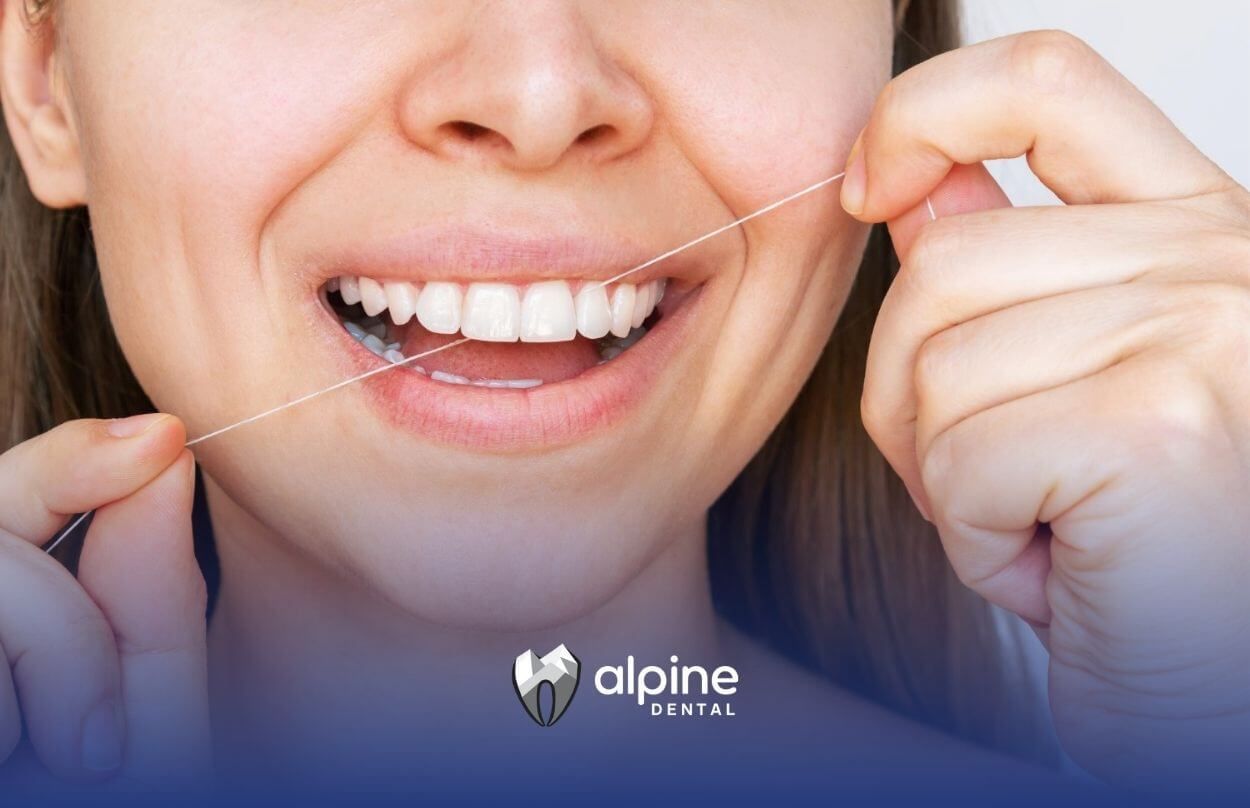Dental Health Tips for Cold and Flu Season: Your Complete Survival Guide
When cold and flu season hits New Jersey, most people focus on tissues, soup, and rest. But did you know your mouth needs extra care too? At Alpine Dental, we believe that a healthy smile is part of your overall wellness, especially when you’re battling sniffles, coughs, or even influenza.
This guide covers everything you need to know about dental health tips for cold and flu season, including how to get rid of dry mouth from a cold, why is influenza a dangerous illness, how long does the flu last, and even the search for a miracle cure for dry mouth. Let’s dive in!
1. Keep Up Your Oral Hygiene—Even When You’re Sick
Why Brushing and Flossing Matter
When you’re under the weather, it’s tempting to skip your regular routine. But brushing and flossing are more important than ever during cold and flu season. Plaque can harden into tartar within 48 hours, which you can’t remove at home. If you wear dentures, clean them thoroughly to eliminate germs and keep your mouth healthy.
Key Facts:
- Brush at least twice a day for two minutes.
- Floss daily to remove bacteria between teeth.
- Clean dental appliances as directed.
Toothbrush Hygiene: What You Need to Know
- Never share your toothbrush, especially when sick.
- Store toothbrushes separately to prevent cross-contamination.
- Consider replacing your toothbrush after you recover, especially if it’s over three months old.
2. Stay Hydrated to Fight Dry Mouth
The Connection Between Illness and Dry Mouth
Colds and the flu often cause nasal congestion, making you breathe through your mouth—leading to dry mouth after flu or during illness. Medications like antihistamines and decongestants can make it worse.
Why It Matters: Saliva helps wash away bacteria and neutralize acids. Dry mouth increases your risk for cavities and gum disease.
How to Get Rid of Dry Mouth from a Cold
- Drink plenty of water: Aim for at least 8 glasses a day, or more if you’re sweating or have a fever.
- Eat hydrating foods: Cucumbers, celery, apples, and soups help maintain moisture.
- Use a humidifier: Especially at night, to keep air moist and reduce mouth dryness.
- Try sugar-free lozenges or gum: These stimulate saliva production and help keep your mouth comfortable.
- Avoid alcohol and caffeine: Both can worsen dryness.
Bonus Tip: Some people find relief with natural remedies like aloe vera juice, lemon water, or even chewing fennel seeds or ginger to stimulate saliva. While there’s no miracle cure for dry mouth, these strategies can help manage symptoms.
3. Choose Sugar-Free Medications and Remedies
The Hidden Sugar in Cough Drops and Syrups
Many over-the-counter cold and flu remedies contain sugar, which can coat your teeth and feed cavity-causing bacteria. Always read labels and opt for sugar-free versions when possible.
What to Look For:
- Sugar-free cough drops and syrups
- Medications sweetened with xylitol or sucralose
- If only sugary options are available, rinse your mouth with water afterward
Timing Matters
If you take acidic medicines or vomit due to illness, wait at least 30 minutes before brushing your teeth. This prevents you from spreading acid over enamel, which can weaken your teeth.
4. Rinse After Vomiting—But Don’t Brush Right Away
Why Rinsing Is Better Than Brushing
Vomiting exposes your teeth to stomach acids. Brushing immediately can rub the acid into your enamel, causing erosion. Instead, rinse with water, a diluted mouthwash, or a mix of water and baking soda. Wait 30 minutes before brushing.
5. Gargle and Soothe Your Throat Safely
Protecting Your Throat and Oral Tissues
Gargling with warm salt water can reduce bacteria in your mouth and throat, helping with bad breath and plaque while soothing soreness. This is a safe way to protect your throat during cold and flu season and support your oral health.
6. Practice Smart Hygiene to Prevent the Spread
Keep Germs at Bay
- Cover your mouth when coughing or sneezing.
- Wash hands frequently.
- Don’t share personal items like toothbrushes or cups.
- Replace your toothbrush after illness to avoid reinfection.
7. Eat Nutritious, Soothing Foods
Try to eat some foods that support oral and overall health, like:
- Soups and broths: Hydrate and soothe your throat.
- Soft fruits and veggies: Apples, bananas, and cooked carrots are gentle on sore mouths.
- Avoid acidic or spicy foods: These can irritate your mouth and throat, especially when you’re sick.
8. Know the Risks: Is Influenza a Dangerous Illness?
Influenza is more than just a bad cold. It’s a highly contagious respiratory infection that can cause severe illness, especially in older adults, young children, pregnant women, and those with chronic health conditions. Complications can include pneumonia, worsening of chronic diseases, and even death in severe cases.
Key Facts:
- Up to 60,000 older adults die from influenza each year in the US.
- The flu can lead to life-threatening complications, especially for high-risk groups.
9. How Long Does the Flu Last?
Understanding the timeline for flu recovery can help you plan your dental care.
- Incubation: 1-4 days after exposure
- Severe symptoms: 2-3 days (fever, fatigue, aches)
- General symptoms: 3-7 days (cough, congestion, weakness)
- Full recovery: Up to 2 weeks, with lingering fatigue or cough possible
If symptoms last longer or worsen, consult a doctor.
10. Miracle Cure for Dry Mouth: What Works?
While there’s no single miracle cure for dry mouth after flu, a combination of strategies can help:
- Hydration: Drink water and eat water-rich foods.
- Stimulate saliva: Chew sugar-free gum, use lozenges, or try citrus (if not irritating).
- Humidify your environment: Especially at night.
- Natural remedies: Aloe vera juice, oil pulling, ginger, fennel, and lemon water may help some people.
- Ask your dentist: There are prescription options and saliva substitutes if symptoms persist.
How Alpine Dental Can Help
At Alpine Dental, we go beyond routine checkups to support your oral health all year—especially during cold and flu season. Here’s what sets us apart:
- Personalized Care: We tailor dental health tips for cold and flu season to your unique needs, including advice for managing dry mouth after flu or from cold medications.
- Advanced Services: From preventive cleanings to restorative care, we offer a full range of dental services to keep your smile strong.
- Comfort-Focused: Our team uses gentle techniques and modern technology to make your visit stress-free—even if you’re still recovering from illness.
- Education First: We empower you with practical tips, from how to get rid of dry mouth from a cold to understanding is influenza a dangerous condition for your oral health.
- Emergency Support: If you experience dental pain or complications during or after the flu, we offer prompt appointments to get you back on track.
Ready to feel your best? Let Alpine Dental be your partner in health—schedule your visit and let’s make your smile the healthiest part of your recovery!
Conclusion: Your Smile Deserves a Sick Day, Too
Cold and flu season doesn’t have to mean trouble for your teeth. By following these dental health tips for cold and flu season, you can protect your mouth, ease dry mouth after flu, and bounce back faster. If you’re searching for a miracle cure for dry mouth or need expert advice on how long does the flu last and how it affects your oral health, Alpine Dental is here to help.
Don’t let your teeth catch a cold! Give your smile the VIP treatment—call Alpine Dental today and let us help you recover with confidence. Your next appointment could be the best medicine your mouth gets this season.
Frequently Asked Questions (FAQs)
What is the 3-3-3 rule for teeth?
The 3-3-3 rule suggests brushing your teeth for 3 minutes, 3 times a day, and waiting 3 hours after eating before brushing to protect enamel.
What is the 2 2 2 rule for teeth?
The 2 2 2 rule means brushing your teeth for 2 minutes, 2 times a day, and visiting your dentist 2 times a year for checkups.
Should I brush my teeth when I have the flu?
Yes, you should continue brushing and flossing during the flu to prevent plaque buildup and reduce bacteria. Wait 30 minutes after vomiting before brushing.
How to protect your throat during cold and flu season?
Gargle with warm salt water, stay hydrated, and avoid irritants like tobacco and alcohol. These steps help soothe your throat and reduce bacteria.
Sources:
- https://www.mouthhealthy.org/all-topics-a-z/cold-and-flu-season
- https://www.hopkinsmedicine.org/health/conditions-and-diseases/dry-mouth-remedies-14-to-try
- https://www.organicfacts.net/dry-mouth.html
- https://www.medicalnewstoday.com/articles/can-you-die-from-flu
- https://www.cedars-sinai.org/newsroom/nbcnewscom-how-dangerous-is-flu-what-to-know-about-symptoms-and-signs-of-complications/
- https://www.businessinsider.com/guides/health/conditions-symptoms/how-long-does-the-flu-last




